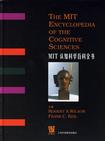MIT认知科学百科全书
出版时间:2000-1 出版社:上海外语教育出版社 作者:编者:ROBERTA.WILSONFRANK.KELL 页数:964
Tag标签:无
内容概要
Since the 1971s the cognitive sciences have offered multidisciplinary ways of understanding the mind and cognition. The MIT Encyclopedia of the represents Sciences(MITECS)is a landmark,comprehensive reference work that represents the methodological and theoretical diversity of this changing field. For both students and researchers,MITCS will be an indispensable guide to the current state of the cognitive sciences. “The cognitive sciences emerged in recognition of the fact that scholars and scientists in many different fields shared common problems and needed to collaborate. Now at last The MIT Encyclopedia of the Cognitive Sciences has provided a forum large enough for that interaction to occur——a forum that will not only facilitate cooperation but will educate a new generation of cognitive scientists.”——George Miller,Professor of Psychology Emeritus,Princeton University “At last,a thorough,authoritative source for work in the cognitive sciences. Take the most important topics in the study of cognition,ask the worlds top authorities to summarize the state of the art,and you have it:The MIT Encyclopedia of the Cognitive Sciences. I have already used it to learn,to browse,to inform,to teach,and to update my own understanding.It doesnt matter which end you seek:the book will frequently be in use.” ——Donald A. Norman. The Nielsen Norman Group;Professor Emeritus,Department of Cognitive Science,University of California,San Diego;and author The Invisible Computer “Among the human minds proudest accomplishments is the invention of a science dedicated to understanding itself:cognitive science. In less than fifty years,deep mysteries of antiquity have been brought into the lab and captured in rigorous theories. This volume is an authoritative guide to this exhilarating new body of knowledge,written by the experts,edited with skill and good judgment.If we were to leave a time capsule for the next millennium with records of the great achievements of civilization,this volume would have to be in it.” ——Steven Pinker,Professor of Psychology,Massachusetts Institute of Technology;and author of How the Mind Works and The Language Instinct.
书籍目录
List of EntriesPreface Philosophy, Robert A.Wilson Psychology, Keith J.Holyoak Neurosciences, Thomas D.Albright and Helen J.Neville Computational Intelligence, Michael I.Jordan and Stuart Russell Linguistics and Language, Gennaro Chierchia Culture, Cognition, and Evolution, Dan Sperber and Lawrence HirschfeldThe MIT Encyclopedia of the Cognitive Sciences List of Contributors Name Index Subject Index
章节摘录
书摘
媒体关注与评论
PrefaceThe MIT Encyclopedia of the Cognitive Sciences (MITECS to its friends) has beenfour years in the making from conception to publication. It consists of 471 concise articles, nearly all of which include useful lists of references and further readings, preceded by six longer introductory essays written by the volume's advisory editors. We see MITECS as being of use to students and scholars across the various disciplines that contribute to the cognitive sciences, including psychology, neuroscience, linguistics, philosophy, anthropology and the social sciences more generally, evolutionary biology, education, computer science, artificial intelligence, and ethology. Although we prefer to let the volume speak largely for itself, it may help to provide some brief details about the aims and development of the project. One of the chief motivations for this undertaking was the sense that, despite a number of excellent works that overlapped with the ambit of cognitive science as it was traditionally conceived, there was no single work that adequately represented the full range of concepts, methods, and results derived and deployed in cognitive science over the last twenty-five years. Second, each of the various cognitive sciences differs in its focus and orientation;in addition, these have changed over time and will continue to do so in the future. We see MITECS as aiming to represent the scope of this diversity, and as conveying a sense of both the history and future of the cognitive sciences. Finally, we wanted, through discussions with authors and as a result of editorial review, to highlight links across the various cognitive sciences so that readers from one discipline might gain a greater insight into relewmt work in other fields. MITECS represents far more than an alphabetic list of topics in the cognitive sciences; it captures a good deal of the structure of the whole enterprise at this point in time, the ways in which ideas are linked together across topics and disciplines, as well as the ways in which authors from very different disciplines converge and diverge in their approaches to very similar topics. As one looks through the encyclopedia as a whole, one takes a journey through a rich and multidimensional landscape of interconnected ideas. Categorization is rarely just that, especially in the sciences. Ideas and patternsare related to one another, and the grounds for categorizations are often embedded in complex theoretical and empirical patterns. MITECS illustrates the richness and intricacy of this process and the immense value of cognitive science approaches to many questions about the mind. ……
图书封面
图书标签Tags
无
评论、评分、阅读与下载
用户评论 (总计11条)
- 赶巧特价, 就买了吧, 呵呵好厚呀, 不知道要多久才能看完, 之前phlips zimbado的psychology &life可是花了一年时间呀.
好书, 慢慢读. - 认知科学百科,内容只有计算机智能、哲学、心理学、认知与进化语言、神经科学6个方面的内容,优点就是参考文献全,内容比较新。
- 一般人们都认为麻省理工是理工科院校,实际上它的社会科学也是非常强的.这本书就是证明.名为认知科学,实际上包含了现在社会科学的主要内容.是研究、备课、写文章和学习使用的最佳工具书。但全书是英文,要求读者有熟练的英语水平程度。
- 字典--|太百科了一点……Orz..很重……
- 非常超值的工具书,很庆幸淘到了
- 其他服务都很好,就是发票上填写的单位名称和价格等字迹不清,写得太潦草。
- 书很好,缺点就是体积太大,没地方放。。。
- 这本书的包装很大气,我感到当当网的诚信与贴切,你们的网站会越办越好!
- MIT认知科学,非常不错的工具书(哈哈,虽然俺这么说,但却没翻过)是因为看汪丁丁的书大量引用过里面的结论,而且非常惊异这本在美国图书馆里天价的书在国内用如此低价格就能看上。偶就决定买回家放着:),其实偶专业能用上啦原来买之前就在想内容是否全英文的,bingo,中招,除了书题,内容全英文版,要费些力气啦,专业词多
- 认知科学是当今世界发展最为迅速的前沿科学之一,它涉及广泛的领域,具有明显的跨学科性,因此对研究者的知识面、思考水平、哲学素养等都有较高的要求。本书对于了解认知科学的发展趋势以及其各分支学科的基本情况很有帮助,并列举了进一步阅读的书目,便于查考和进一步的研究。全书英文,但其实也不是很难,总之是一本较好的工具书。
- 非常基础的一本介绍认知科学的入门书,国外大学用于本科生教学使用
推荐图书
- 旅游案例分析与启示
- 国际法案件精解
- 最新应用文写作
- 企业重整
- 近思录
- 好孩子--儿歌300首
- 历史/金榜学案高考复习指导及训练
- 风险投资管理
- 高中数学解题方法集锦
- 十年来影响中国经济决策的论点
- 金版1+1同双测.高二生物(上)
- 北京数学奥林匹克习题与解析5 (平装)
- 保健与食疗
- 让孩子在美好的歌声中成长(上下
- 解题高手.初中物理
- 大学英语课堂限时阅读3
- 小学生金钥匙系列工具书
- 美德故事
- 局部解剖学考试常见错误与对策
- 常见肾脏疾病的防治与食疗
- 饮茶与养生
- 五年级第二学期.数学小天才.小学生数学思维能力训练教程
- 按摩疗法治百病
- 园艺百科05 四季香颂多年生草花风情万种
- 故事会/2000年合订本(上下册)
